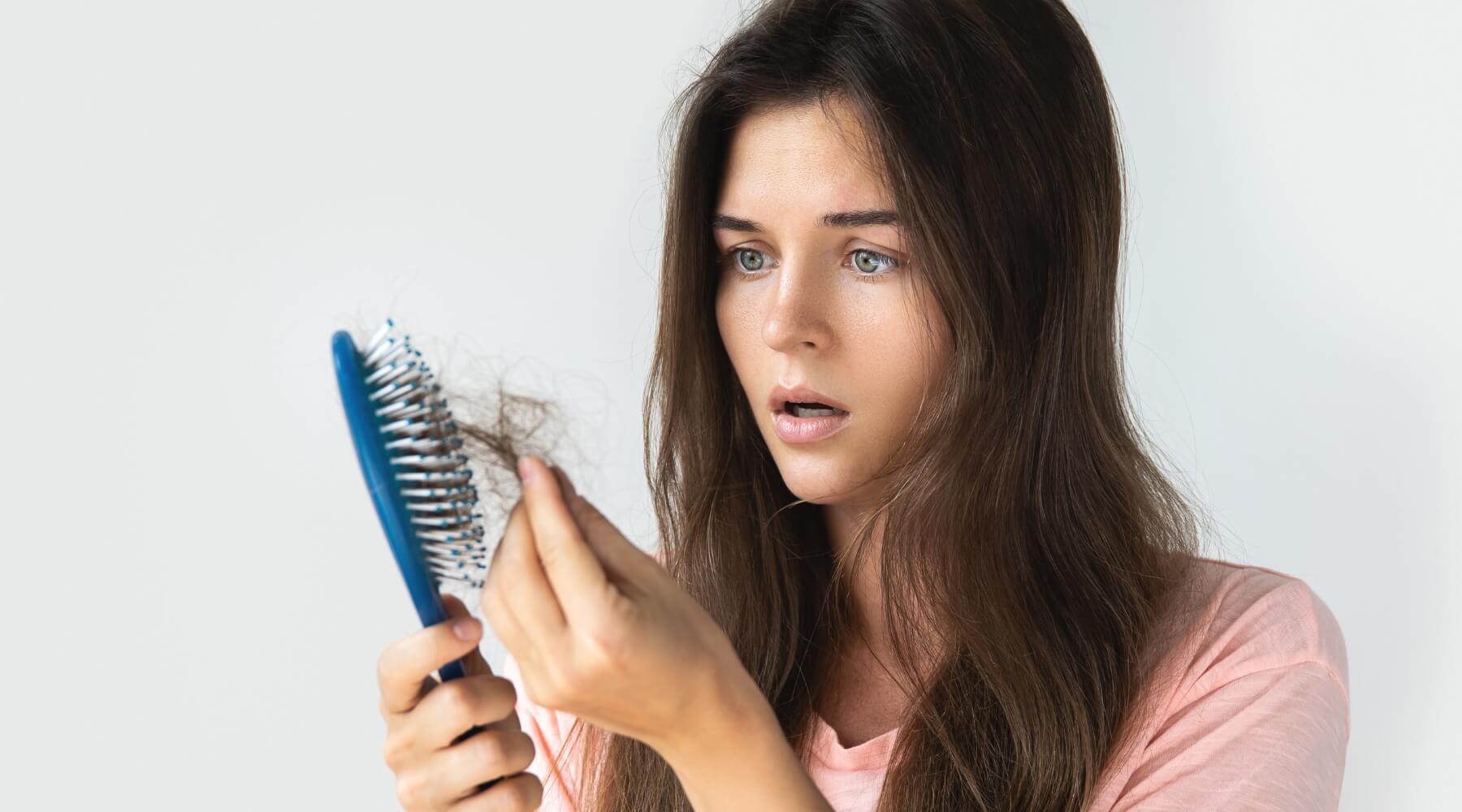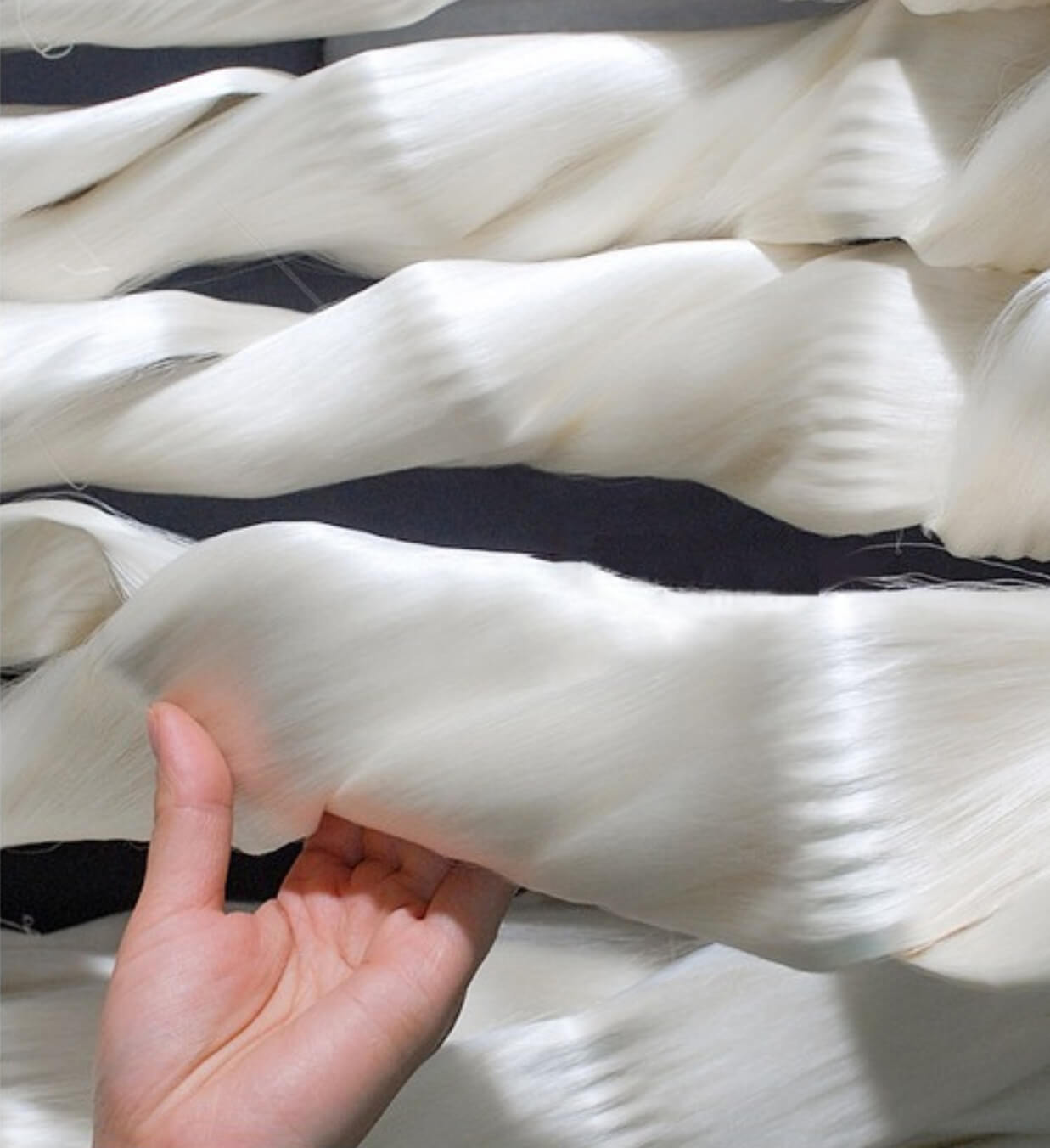If you start noticing more hair coming out when you brush your hair, clumps of strands building up in the shower drain, more loose hairs on your pillow and around your home after your baby is both, you might be experiencing postpartum hair loss, officially known as telogen effluvium.
Many new moms experience excessive hair loss after giving birth. Postpartum hair loss is actually a very common - yet surprising - side effect of pregnancy. Read on to learn why it happens, when it happens, and how to treat it.
What causes postpartum hair loss?
Postpartum hair loss, also known as postpartum alopecia, is a common condition that many women experience after giving birth. It occurs due to hormonal changes that take place during pregnancy and the postpartum period. While it can be distressing, it's usually a temporary condition and the hair typically regrows over time.
When will postpartum hair loss start to happen?
Hair shedding usually peaks about four months after giving birth.
How long does postpartum hair loss last?
Postpartum hair loss is a natural process and is usually temporary. Most women notice their hair returning to its normal thickness within 6-12 months after childbirth.
What to do if you have postpartum hair loss?
While it can be distressing, it's usually a temporary condition and the hair typically regrows over time. Here are some tips to help manage postpartum hair loss:
-
Be patient: Understand that postpartum hair loss is a natural process and is usually temporary. Most women notice their hair returning to its normal thickness within 6-12 months after childbirth.
-
Good nutrition: Eating a balanced diet rich in vitamins and minerals, particularly those essential for hair health like biotin, zinc, and iron, can support healthy hair growth. You might consider taking postnatal vitamins or supplements under the guidance of a healthcare professional.
-
Gentle hair care: Avoid tight hairstyles that pull on the hair, as this can further stress the hair follicles. Try silk hair ties and silk scrunchies to prevent further hair damage. Be gentle when combing or brushing your hair to prevent breakage. Use a wide-toothed comb or a soft brush.
-
Shampoo and condition: Use a mild, sulfate-free shampoo and conditioner that is suitable for your hair type. Avoid overwashing your hair, as excessive washing can strip natural oils and cause more hair breakage.
-
Heat styling and chemical treatments: Minimize the use of heated styling tools like flat irons and hairdryers, as well as chemical treatments like perms and dyes, which can weaken hair. If you must use them, use heat protectant sprays and opt for professional treatments that cause less damage.
-
Scalp massage: Massaging your scalp with gentle circular motions can increase blood circulation to the hair follicles, potentially promoting hair growth.
-
Stress management: High levels of stress can contribute to hair loss. Find ways to manage stress through relaxation techniques like yoga, meditation, or deep breathing exercises.
-
Supportive hair products: Consider using hair products specifically designed to strengthen and thicken hair. Some shampoos and conditioners contain ingredients that can improve the appearance of thinning hair.
-
Hormonal balance: If you're concerned about your postpartum hair loss or if it's particularly severe, consult with a healthcare provider to rule out any underlying hormonal issues or nutritional deficiencies.
-
Haircuts and styles: A shorter haircut or different hairstyle may help disguise the thinning hair and provide a fuller appearance.
Remember that postpartum hair loss is usually a temporary condition, and your hair should gradually return to its normal thickness as your hormones stabilize. If you're still concerned about your hair loss or if it continues for an extended period, it's a good idea to seek advice from a dermatologist or healthcare professional to rule out any underlying issues and discuss potential treatments.




